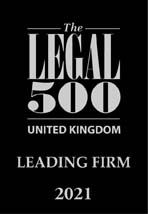Wasted Costs Orders Against Legal Representatives
The recent High Court case of MA Lloyds & Sons Ltd (in administration) v PCC International Ltd (trading as Professional Powercraft) [2016] EWHC 2162 (QB) warns of the court’s power to order that a legal representative should pay the wasted costs of proceedings.
A wasted costs order in the sum of £101,058 was made against a claimant’s solicitor after it was found that he was responsible for causing significant costs to be wasted due to “improper and unreasonable solicitor led steps”.
Background
MA Lloyds & Sons Ltd (“MAL”) sought to pursue a claim against PCC International Ltd (“PCC”) for alleged breach of a confidentiality agreement and passing off. The claim was dismissed due to procedural irregularities and MAL unsuccessfully attempted to pursue a second and third set of proceedings. Throughout the proceedings, MAL instigated a meritless appeal and a series of failed applications that were tactics to wear down PCC and delay or avoid payment of the various adverse costs orders that were made against it.
MAL’s initial proceedings were brought in 2011 and the company went into administration in 2015. At this stage, costs orders had been made against MAL totalling around £120,000. The prospect of PCC recovering these costs from PCC were minimal and it therefore sought a wasted costs order against MAL’s solicitor, Mr McCarthy.
PCC alleged that Mr McCarthy led the proceedings and that his conduct of the claim was improper and unreasonable. Mr McCarthy was a qualified solicitor that was employed by a company charity that provided legal support to the public. This charity was not authorised to carry out litigation and so Mr McCarthy was pursued personally.
The court has discretion to order a legal or other representative to meet any wasted costs under section 51(6) of the Senior Courts Act 1981.
In determining whether to make a wasted costs order against Mr McCarthy, the High Court had to consider the following issues:
-
Whether Mr McCarthy could be said to have had conduct of the litigation.
-
Whether the steps taken by Mr McCarthy were improper and unreasonable and/or “solicitor-led”.
-
Whether the waste of costs was caused by the acts of Mr McCarthy as opposed to the instructions or overall wishes of his client.
Ruling
The court was satisfied that Mr McCarthy conducted the litigation. There was evidence to support that he was the decision maker and in charge of the claim. Mr McCarthy had previously acknowledged himself to be the supervising solicitor and MAL argued that Mr McCarthy did not keep it fully appraised of the steps being taken and that it left the litigation in his hands. Mr McCarthy failed to produce any evidence to the contrary.







